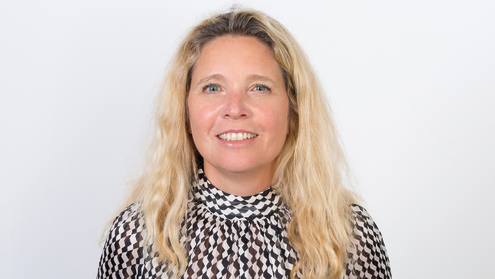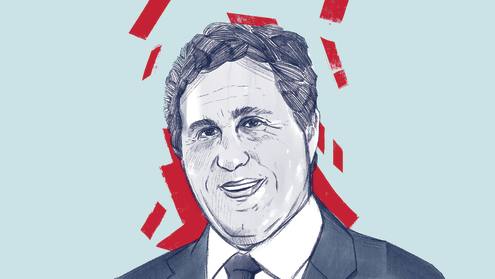The world needs Latin America and the Caribbean like never before, and the time has come for the region to take its rightful seat at the table in addressing the existential crises facing us all today, including climate change, food insecurity and historic migration flows.
It is not just a matter of integrating the voices of developing countries into global decision-making forums. It is about progress and, for some challenges like climate change, survival, where the world would benefit greatly from the perspectives, approaches and solutions generated in Latin America and the Caribbean. Latin America and the Caribbean certainly have a lot at stake: 13 of the 50 countries identified as most affected by the climate emergency are in the region.
Traditionally, the international perception of the region has been obscured by a hopeless cloud of drug trafficking, political instability, corruption and inflation. It is true that all are obstacles that have historically held back our hopes for development. It is also true that internal political disputes have prevented the region from uniting as a block in the way that Europe, for example, has done in a cohesive and co-ordinated manner. Our inability to do so has held us back for far too long from the global decision-making centres.
A role to play
But the current global challenges present a unique opportunity for Latin America and the Caribbean. The climate crisis, for example, cannot be solved without the region. It is estimated that up to 37% of the mitigation needs against climate change can be met with nature-based solutions, and the region makes up 60% of the world’s biodiversity, 50% of its primary forests and 28% of land with potential for agriculture. The data clearly demonstrates that our natural advantages are key to preserving global climate stability, as well as for mitigating the effects of global warming in vulnerable areas such as the Caribbean, which will be one of the most severely affected.
Latin America makes up 60% of the world’s biodiversity, 50% of its primary forests and 28% of land with potential for agriculture
The planet needs the region’s leadership to guarantee its own survival, and the region must take advantage of this position to achieve sustained economic growth that helps to overcome structural gaps in poverty, competitiveness and inclusion. There are also huge investment opportunities: from new carbon capture mechanisms to the deployment of renewable energy, sustainable mobility and resilient infrastructure.
Additionally, the region’s agricultural prospects give it the potential to become the world’s breadbasket. It has 28% of the land that can be exploited sustainably as well as one third of the planet’s freshwater resources. Nevertheless, in 2020, food insecurity affected almost 41% of the region’s population (270 million people), according to the UN’s Food and Agriculture Organization and World Food Programme.
To position itself as a leader in food security, Latin America must improve the management of water resources to boost irrigated agriculture. This will only happen with investments in infrastructure that help improve agricultural productivity and access to international markets.
Historical problems
To seize these opportunities, the region must overcome several historical gaps. The first is low productivity. In 1970, regional labour productivity represented 25% of that of the US; in 2017, it had barely increased to 27.8%. Informality also continues to affect practically half of the population. Nor have we been able to effectively integrate our companies into global value chains or diversify our economies to successfully make them less dependent on raw materials. We have also struggled to make advancements in regional integration.
At CAF-Development Bank of Latin America, we are taking action to support the region’s greater geopolitical projection and to finance the kind of solutions that can convert talk and commitments into concrete action in the real world for the benefit of millions.
To achieve a position that has a global impact, Latin America needs to shape itself into a single voice and deepen synergies with strategic allies such as Europe, the US, China and the Middle East. To this end, CAF is working to promote new alliances and creating new forums for co-operation at both private and public levels. One of those is the Mayors Summit from Latin America and the US, which we held this year in Denver, to promote new sustainable solutions in urban spaces, such as CAF’s Biodivercities network, which aims to articulate Latin Americans mayors’ work to preserve biodiversity and boost economic growth.
Meeting the EU
Another important gathering will be a convening of the ministers of finance from the EU with peers from Latin America and the Caribbean in September 2023. The event will take place in Spain to coincide with the country’s presidency of the Council of the EU and will bring together 60 ministers of finance (27 European and 33 Latin American) to generate transatlantic synergies on key issues such as green growth, digital transformation and human development.
Connectivity from 4G and satellite solutions for remote and rural areas to fibre and 5G deployment, as well as the role of digital education and training to prepare the Latin American and Caribbean workforces for the future of labour, will also be on the agenda. The meeting will add a green perspective to digital transformation, covering how technologies can help address climate change, foster decarbonisation, preserve biodiversity and a gender equity approach. Emphasis will be also placed on human development through involvement in education – especially vocational education and training – and research, social and health protection systems, dignifying work and labour formalisation, gender equality and policies leading to the achievement of the UN Sustainable Development Goals.
In the lead-up to that meeting, CAF will also host a business summit in Brussels on the EU and Latin America and the Caribbean in July 2023. Currently, the member states of the EU represent the main source of foreign direct investment in Latin America and the Caribbean, with an accumulated stock of €800bn. European companies have invested more resources in the region than in China, Japan, Russia and India combined. Further European investment in clean energy technology could help significantly reduce greenhouse gas emissions, while achieving a lower-cost energy supply for countries – in the region and in Europe – that involves less dependence on imported fossil fuel products.
we believe Latin American and Caribbean leadership could help streamline various international efforts addressing critical elements of the climate crisis
At CAF, we are not just using our convening power; we are expanding our mobilisation of capital to power the green and just energy transition. We have set out an agenda to become the green bank in Latin America and the Caribbean. This agenda is based on aligning the economic sectors and reorienting them towards environmental social responsibility. We will also allocate $25bn dollars to finance projects on environment, forests, mitigation, adaptation, water, the blue economy and biodiversity preservation, for example. Our green financing portfolio will go from 26% in 2020 to an estimated 40% in 2026.
Finally, we believe Latin American and Caribbean leadership could help streamline various international efforts addressing critical elements of the climate crisis. In 2022, events such as the COP27 in Egypt, the COP15 in Canada and the Ocean Conference in Portugal helped push the climate agenda, but they would probably be more efficient if they brought country negotiations on biodiversity, climate change, the blue economy and soil protection into a single space.
Latin America and the Caribbean is young and innovative. It has enormous potential to provide solutions for the great global challenges. The time has come to lean into those possibilities.
Sergio Díaz-Granados is the executive president of CAF – Development Bank of Latin America.







